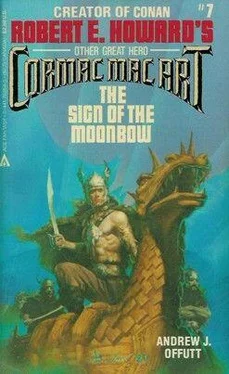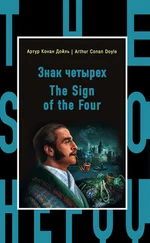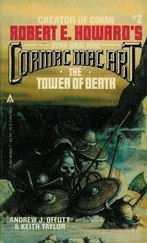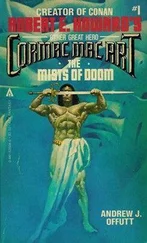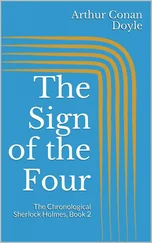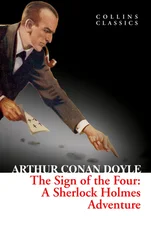Andrew Offutt - The Sign of the Moonbow
Здесь есть возможность читать онлайн «Andrew Offutt - The Sign of the Moonbow» весь текст электронной книги совершенно бесплатно (целиком полную версию без сокращений). В некоторых случаях можно слушать аудио, скачать через торрент в формате fb2 и присутствует краткое содержание. Жанр: Фэнтези, на английском языке. Описание произведения, (предисловие) а так же отзывы посетителей доступны на портале библиотеки ЛибКат.
- Название:The Sign of the Moonbow
- Автор:
- Жанр:
- Год:неизвестен
- ISBN:нет данных
- Рейтинг книги:3 / 5. Голосов: 1
-
Избранное:Добавить в избранное
- Отзывы:
-
Ваша оценка:
- 60
- 1
- 2
- 3
- 4
- 5
The Sign of the Moonbow: краткое содержание, описание и аннотация
Предлагаем к чтению аннотацию, описание, краткое содержание или предисловие (зависит от того, что написал сам автор книги «The Sign of the Moonbow»). Если вы не нашли необходимую информацию о книге — напишите в комментариях, мы постараемся отыскать её.
The Sign of the Moonbow — читать онлайн бесплатно полную книгу (весь текст) целиком
Ниже представлен текст книги, разбитый по страницам. Система сохранения места последней прочитанной страницы, позволяет с удобством читать онлайн бесплатно книгу «The Sign of the Moonbow», без необходимости каждый раз заново искать на чём Вы остановились. Поставьте закладку, и сможете в любой момент перейти на страницу, на которой закончили чтение.
Интервал:
Закладка:
The skull of Thulsa Doom faced him again. Nor longer did the baneful light glow in those red coals of eyes.
It was with the first real smile Cathbadh had seen on him that Cormac mac Art turned again to the wizard-priest of Danu.
“Ah, Lord Cathbadh of the Danann, this was the first foe ever I met and could not conquer and who struck horror and anguish to my very liver! And ye have rendered him powerless, and it’s only great gratitude and love I feel for ye, man. Would that there were aught I could do for yourself, give to yourself, wizard!”
Cathbadh gripped the other man’s arm. “Ye’ve done us service, Cormac of the Gaels. Nor do the Danans hate your people, nor I you. If I asked that which comes first into my mind, I’d bring misery upon ye, though, for it would be that ye remain among us in Daneira.”
Samaire gasped, but Cathbadh only smiled and shook his head at the anguish in the face of mac Art. Without looking at her, he stayed with a hand Sinshi’s forward rush.
“I said I’d not ask that. But I will ask one service of ye, Cormac mac Art of the Gaels, and one that is in your power to give without cost to yourself.”
“Granted without the hearing of it,” Cormac said, and for a long moment the two men looked each at the other, and Cathbadh nodded.
“This night ye will remain all with us in Daneira.”
Cormac blinked. Frowning, Samaire looked at Sinshi-and the way that tiny woman looked at Cormac-for Samaire of Leinster knew this little creature was no girl, but a woman looking with desire on her man. Brian started to smile, quelled it, though a glance told him the three men of Daneira were broadly grinning. Nothing sinister was there in those smiles, but only joy.
“Cathbadh-” Cormac began.
“Ye’ve given your word, Wolf,” Wulfhere rumbled. “And-this handsome Findhu here has assured me there is ale in Daneira that wants tasting by an expert.”
Cormac mac Art smiled. “This night we spend with ye in Daneira, Cathbadh. And… Cathbadh.” He turned to look again upon Thulsa Doom. “This… creature. He need no longer be transpierced thus, with our swords?”
“He need not, Cormac. He is powerless, and will obey you. Nor can he remove the chain of Danu’s power.”
Cormac nodded. “Then to leave him thus Sword-nailed is unnecessary, and needless cruelty as well?”
“I cannot judge ‘need’ and its lack, Cormac na Gaedhel: Cruelty to leave him thus? He feels little pain, in truth. But he does know terrible piercing cold, with the steel of this world of the living stabbing through and through his body without warmth, a body that should have lain so long in the grave as to be naught but dust.” Cathbadh nodded. “Aye, would be cruelty to leave him thus pinned, and it unnecessary.”
Cormac stared into the eye-sockets of Thulsa Doom. “Good,” he said. “The swords remain, then.”
Chapter Six:
The Problem of Daneira
Wolfhere, Brian, Bas and Samaire were happy to accompany Cormac and the Daneirans to their little city of highly decorated wooden houses.
After all their hardships in the month they’d been away from Eirrin, asea and on Doom-heim, the horror and constant tension whilst Thulsa Doom sorcerously sought vengeance on Cormac and the deaths of all his companions, and that final ghastly battle of friend against friend, engineered by the undying wizard-the companions of mac Art were more than glad to accept the hospitality of peaceful Daneira.
With them went Thulsa Doom.
It was not that Cormac relented; none wanted to leave Thulsa Doom, and Cathbadh demonstrated his confidence in the Chains of Danu by leading all of them to his “city”-the docile mage included.
A feast was set in preparation, to be served in the house of the king. It was a house, not a palace, no more ornately carven and painted than many, though considerably larger than all. Cormac bathed and enjoyed the luxury of a shave in warm water. His and the others’ hair was trimmed. Dinner robes were pressed upon them. These were dyed and patterned in the way of Daneira: gaily bright. Nor ever did they see their own tunics again, for by morning they had served as patterns for the stitching of new tunics for all-and a new robe of green woollen for Bas of Tir Connail. Many women worked at that task, and willingly. In Daneira the women sewed and tended the gardens, with the children; men and women alike saw to the arable land and the crops; the men tended the beasts, felled trees and stripped and trimmed them, and created furniture and new objects and utensils, all of wood. Both men and women cooked.
In Daneira there was one class of people.
In Daneira there were no warriors.
Nor had metal ore been found on the island of Danu the Mother. Cormac and his companions were not averse to pressing upon their hosts the arms and armour they had captured, for even shield bosses and belt buckles would make hoes and rakes, parts for woodworking tools, awls and scrapers and finepointed knives and chisels for carving and plowshares.
Both Cormac and Wulfhere winced at the thought of laboriously wrought mail being returned to liquid and beaten into new shapes, none for warfare or defense. For Brian the concept was repugnant; both the father and uncle of Brian-I-love-to-fight of Killevy in Airgialla were makers of armour. Yet neither of the two sons of Eirrin held scalemail in high regard, and donated much of that from dead Norsemen. Superb curers of hides and workers in leather, the Daneirans had no use for hardened leather that had served as armour.
The line was drawn at swords. Those the travellers would keep. Swords were valuable, for their making was a high art and a lengthy task. One blade Cormac did pronounce of dangerously inferior workmanship; two others were too badly pitted and deeply notched for the keeping. These, with every shield of Dane and Norse, Eirrish and Briton, were given to the people of Daneira. They would soon be tools for other tasks than slaying.
Far more numerous than swords were axes, for they were more commonly carried by men who could not afford the product of the swordmaker’s art and high craft. Every ax was proffered on Daneira as gift. They had only to be fitted with longer helves to become tools for the felling of trees rather than of men.
To Cathbadh his guests gave silver more than sufficient to replace the Chains of Danu that Cormac and Thulsa Doom now wore. The wizard-priest was hesitant to accept the valuable metal.
“It was stolen by the Norse,” Cormac told him, “who slew the original owners. We took it from the treasure-trove of the murderers. There is blood payment on it, Cathbadh-and it will all boil away in the melting down. When it is made into wire that becomes links of chain, know that ye have it of those men of that same Norge who cost ye so much this day.”
Cathbadh accepted the gift of blood-bought silver.
Nor would the Daneirans abide the departure of their strange-eyed guests without pressing on them fine gifts of magnificently wrought goblets and bowls, mugs and even belt-buckles and cloak-pins, all of wood. At the softly tanned leatherwear of Daneira Cormac drew line again, saying that animals were too few here for these people to be giving away the products of their hides. His companions looked down in silence at that announcement; none of them but coveted this finest of cured, supple leather.
On the king’s insistence, each traveller accepted a Daneiran belt, soft as thickly folded silk and fitted with buckles of wood, ornately carven and lacquered again and again.
Dinner in the hall of the king was a gala feast, with many present in their brightly hued dining robes. Nor could they get enough of the unusual hues of the hair and eyes of Cormac’s companions, colours none had seen ere this day.
Читать дальшеИнтервал:
Закладка:
Похожие книги на «The Sign of the Moonbow»
Представляем Вашему вниманию похожие книги на «The Sign of the Moonbow» списком для выбора. Мы отобрали схожую по названию и смыслу литературу в надежде предоставить читателям больше вариантов отыскать новые, интересные, ещё непрочитанные произведения.
Обсуждение, отзывы о книге «The Sign of the Moonbow» и просто собственные мнения читателей. Оставьте ваши комментарии, напишите, что Вы думаете о произведении, его смысле или главных героях. Укажите что конкретно понравилось, а что нет, и почему Вы так считаете.
